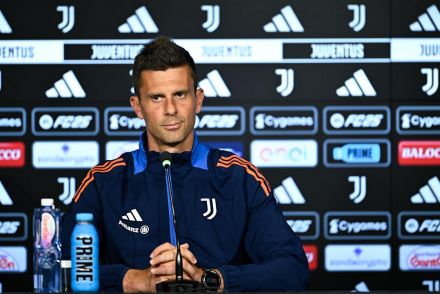The allure of UEFA competitions is undeniable, and for a club of Juventus’ stature, the absence from these prestigious tournaments has been keenly felt. As the footballing world looks ahead to the 2024/2025 season, the burning question lingers: Can Juventus make a triumphant return to the UEFA stage?
In this exploration, we dissect the financial and regulatory challenges that have cast a shadow over the Old Lady’s European ambitions and analyse the likelihood and implications of their potential return.

Financial Hurdles: Navigating the Waters of FFP
One cannot discuss Juventus’ European aspirations without confronting the financial juggernaut that is financial fair play (FFP). The regulations, implemented by UEFA to ensure clubs operate within their means, have been a double-edged sword for many. Juventus, while historically a financial powerhouse, has faced challenges aligning with FFP guidelines. They were even officially banned from playing last season after breaking FFP regulations.
The club’s financial health and adherence to FFP will play a pivotal role in determining its eligibility for UEFA competitions. Recent seasons have seen Juventus grapple with balancing significant player wages, transfer expenditures, and the economic fallout from the global pandemic.
To secure a coveted spot in UEFA competitions, the Old Lady must navigate these financial waters astutely, potentially necessitating shrewd transfer dealings, wage management, and revenue optimization.
Squad Reinforcement: Strengthening the Team
Juventus’ return to UEFA competitions hinges not only on financial prudence but also on the quality of the squad. The cutthroat nature of European tournaments demands a roster equipped with depth, talent, and tactical versatility. As the club eyes a return, strategic squad reinforcement becomes imperative.
The recruitment strategy must strike a delicate balance between injecting fresh, young talent and retaining experienced campaigners. A harmonious blend of emerging stars and seasoned leaders can provide the competitive edge needed to navigate the demanding fixtures of UEFA competitions. If not,
Juventus’ cracks will show when we get the latest football odds on 10bet.
The transfer market will become a battleground where Juventus must secure players who not only meet the tactical requirements but also align with the financial constraints imposed by FFP.
Regulatory Landscape: Navigating the Post-Super League Era
The ill-fated attempt at the European Super League in 2021 cast a long shadow over European football, leading to intensified scrutiny of participating clubs. Juventus, being one of the clubs involved in the proposed breakaway, faces a delicate dance with UEFA and national governing bodies.
Rebuilding the fractured relationship with UEFA is paramount for Juventus’ return to the fold. Negotiating potential sanctions and demonstrating a commitment to the principles of European football will be integral. Juventus must showcase a genuine desire to collaborate within the existing structures and contribute to the growth and integrity of UEFA competitions.
Domestic Rivals: A Serie A Resurgence
While European aspirations are at the forefront, Juventus cannot overlook the competitive landscape within Serie A. The domestic league serves as both a springboard and a litmus test for European ambitions. A resurgence in Serie A performance not only boosts confidence but also ensures a consistent stream of UEFA qualification through league standings.
Competing with domestic rivals such as Inter Milan, AC Milan, and Napoli will demand a strategic approach to league fixtures. Consistency, tactical flexibility, and the ability to secure points against fellow contenders will be crucial. A robust Serie A campaign not only positions Juventus favourably in the domestic league but also provides a launching pad for a triumphant return to UEFA competitions.
Fan Engagement: The 12th Man Factor
In the pursuit of UEFA glory, Juventus must not underestimate the power of its passionate fanbase. The 12th-man factor, especially in the cauldron of European nights, can be a game-changer. Engaging fans, rekindling the spirit of the Turin fortress, and creating an electrifying atmosphere can galvanise the team on the pitch.
Beyond the emotional connection, fan engagement also extends to the financial realm. Increased ticket sales, merchandise revenue, and a surge in global fanbase participation contribute to the financial arsenal required for UEFA eligibility. Juventus must leverage its expansive fanbase as a strategic asset in the journey back to European prominence.
Conclusion
As Juventus stands at the crossroads of its European destiny, the path back to UEFA competitions is riddled with challenges and opportunities. The financial intricacies of FFP, the regulatory aftermath of the Super League saga, squad rejuvenation, Serie A resurgence, and the unwavering support of the fan base collectively form the narrative of Juventus’ comeback story.
The footballing world awaits with bated breath to witness whether the Old Lady can reclaim her throne among Europe’s elite. It’s a journey that requires a delicate dance with financial constraints, a strategic vision for squad development, and a commitment to the principles that govern European football.
If Juventus can navigate these challenges adeptly, the return to UEFA competitions in the 2024/2025 season could mark the beginning of a new chapter in the illustrious history of the Bianconeri. The world watches as Juventus embarks on this quest, driven by the indomitable spirit that has defined the club for decades.




